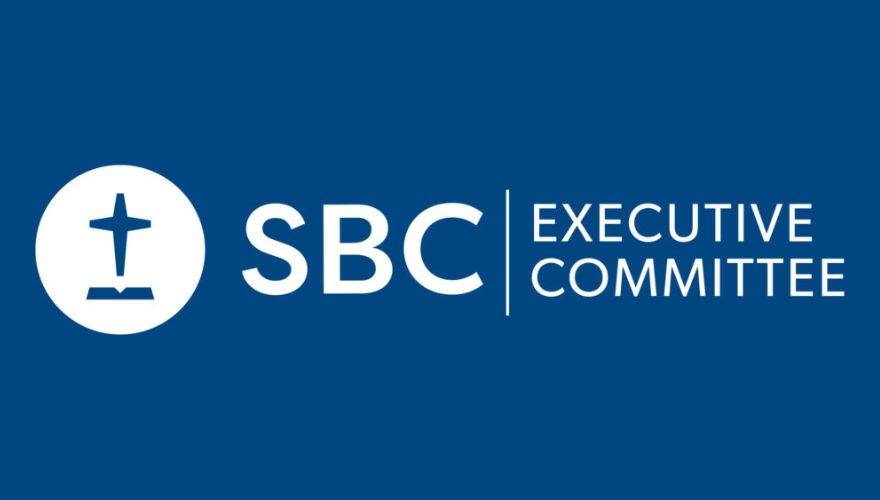
SOPHIA, N.C. – The Baptist State Convention of North Carolina’s (BSCNC) board of directors approved a policy that establishes a process to determine whether or not a church is in “friendly cooperation” with the state convention on matters related to Baptist beliefs and distinctives.
The policy, which goes into effect immediately, was approved during the board’s regularly scheduled fall meeting, which was held Monday and Tuesday, Sept. 25-26, at Caraway Conference Center near Asheboro.
Before being presented to the board, the policy had been unanimously endorsed by the board’s executive committee (EC) during a virtual meeting held in August.
The policy outlines a process by which questions about a church’s adherence to Baptist beliefs and distinctives can be submitted to state convention officials and how those cases will be reviewed. The policy also defines a process by which churches could appeal decisions.
Under the policy, the executive committee of the N.C. Baptist board of directors would review matters on a case-by-case basis. If the executive committee determines that a local church is not in friendly cooperation, the church may appeal the decision to the full board of directors. If the church is not reinstated by the full board, the congregation may appeal the decision from the floor of the state convention’s annual meeting.
The board’s adoption of the policy came in response to several changes made to the BSCNC’s articles of incorporation that messengers approved during last year’s N.C. Baptist annual meeting to provide greater clarity about what constitutes a cooperating church.
Those changes define a cooperating church as one that has a faith and practice that “closely identifies” with Baptist beliefs and distinctives, financially supports the Cooperative Program, and does not affirm, approve, endorse, promote, support or bless LGBTQ+ lifestyles; discriminatory behavior on the basis of race or ethnicity; or behavior inconsistent with biblical teachings regarding sexual abuse.
The approval of the changes to the articles of incorporation authorized the state convention’s board of directors to develop policies to apply the provisions related to a church’s cooperation status when questions arise.
In May, the board approved policies that addressed cooperation related to Cooperative Program support and provisions related to LGBTQ+ lifestyles, discrimination and abuse. The board chose to take more time to develop the policy related to matters of friendly cooperation.
Neither the new policy nor the state convention’s governing documents specify a particular statement of faith that cooperating churches must adopt, endorse or adhere to. Additionally, neither the policy nor the governing documents include a comprehensive list of doctrinal matters that would be used in determining whether or not a church is in friendly cooperation.
The policy recognizes that “every church is self-governing (autonomous) and has the right to subscribe to a statement of faith that it so chooses, or none at all. BSCNC does not dictate that churches in friendly cooperation must subscribe to or wholly affirm a particular statement of faith.”
The policy is consistent with action taken by the convention in 2011 to affirm the Baptist Faith and Message 2000 as the doctrinal guide for cooperative ministries, along with a resolution that was adopted in support of the Baptist Faith and Message 2000.
A proposed amendment to the policy that appealed to the Baptist Faith and Message 2000 as a reflection of Baptist beliefs and distinctives indicated in the articles of incorporation did not pass following some discussion by board members.
Board member Jeff Holder, pastor of West Canton Baptist Church in Canton, made the motion to amend the policy. Holder’s motion sought to add language to the policy stating that “the Baptist Faith and Message 2000 accurately reflects Baptist beliefs and distinctives” and that closely identifying with Baptist beliefs and distinctives should be understood as “not clearly contradicting Baptist beliefs and distinctives as defined by the Baptist Faith and Message 2000.”
In presenting the policy to the board, N.C. Baptist Director of Convention Relations Seth Brown said the decision not to connect the policy to a specific statement of faith or a list of doctrinal distinctives was intentional.
“We believe the board should avoid requiring churches to abide by every jot and tittle of a particular statement of faith,” Brown said. “That is not the way this convention has ever operated in almost 200 years, nor should it.
“Instead, we ask the board and the EC to rely on prayerful discernment and charitable dialogue with church leaders during the inquiry process that’s outlined here.”
When questions related to cooperation arise, Brown added that the severity of a church’s alleged actions and the church’s intent would also be factors considered during the review process.
Brown also encouraged wisdom in how the policy is implemented.
“It would be a misuse of the policy to destroy the convention’s unity by using it as an investigative tool to police minor differences among our churches,” Brown said. “We have to have a policy like this to satisfy our governing documents, but we must use it wisely.”


